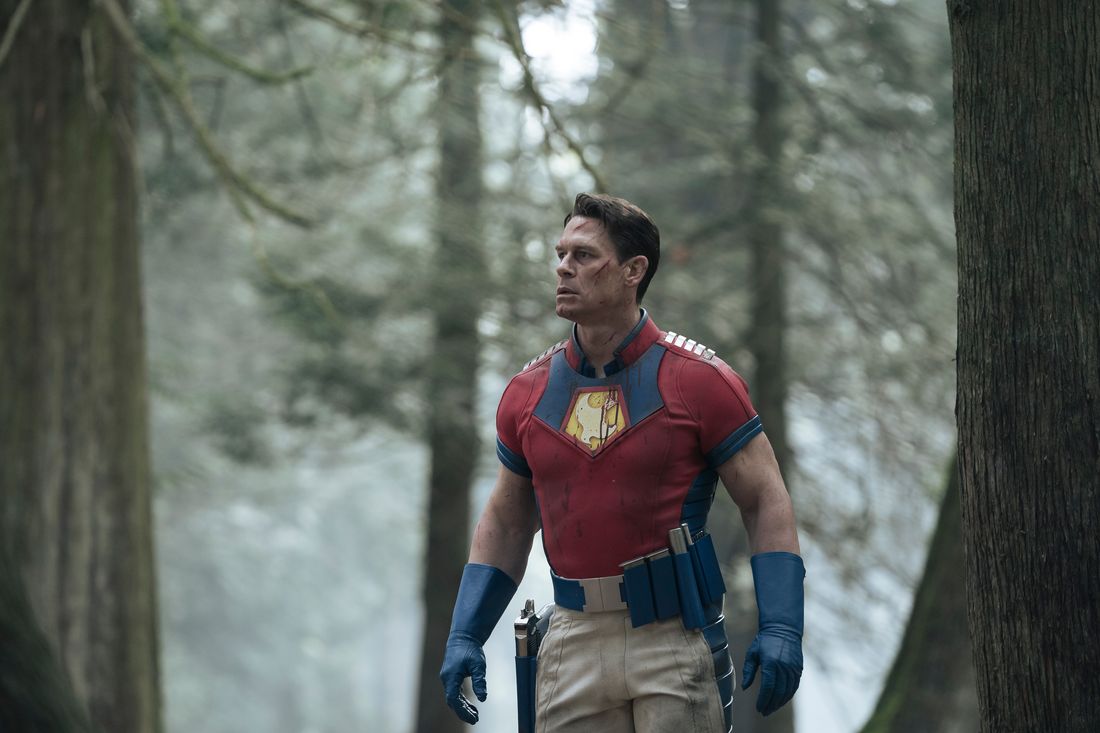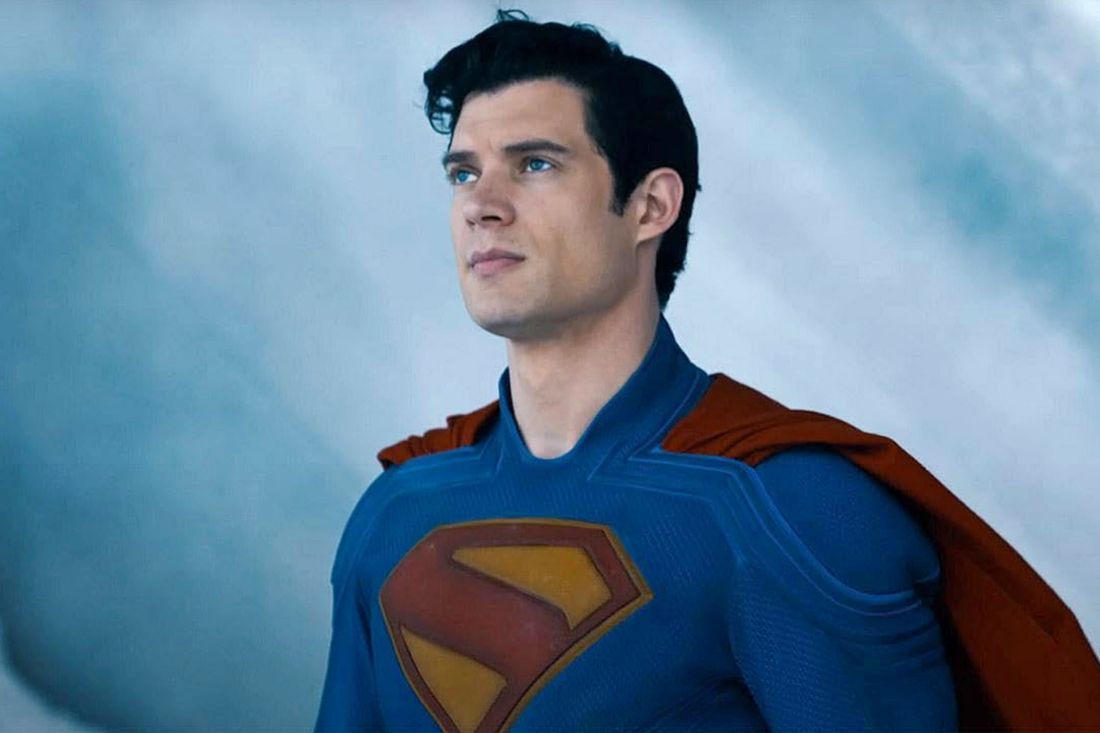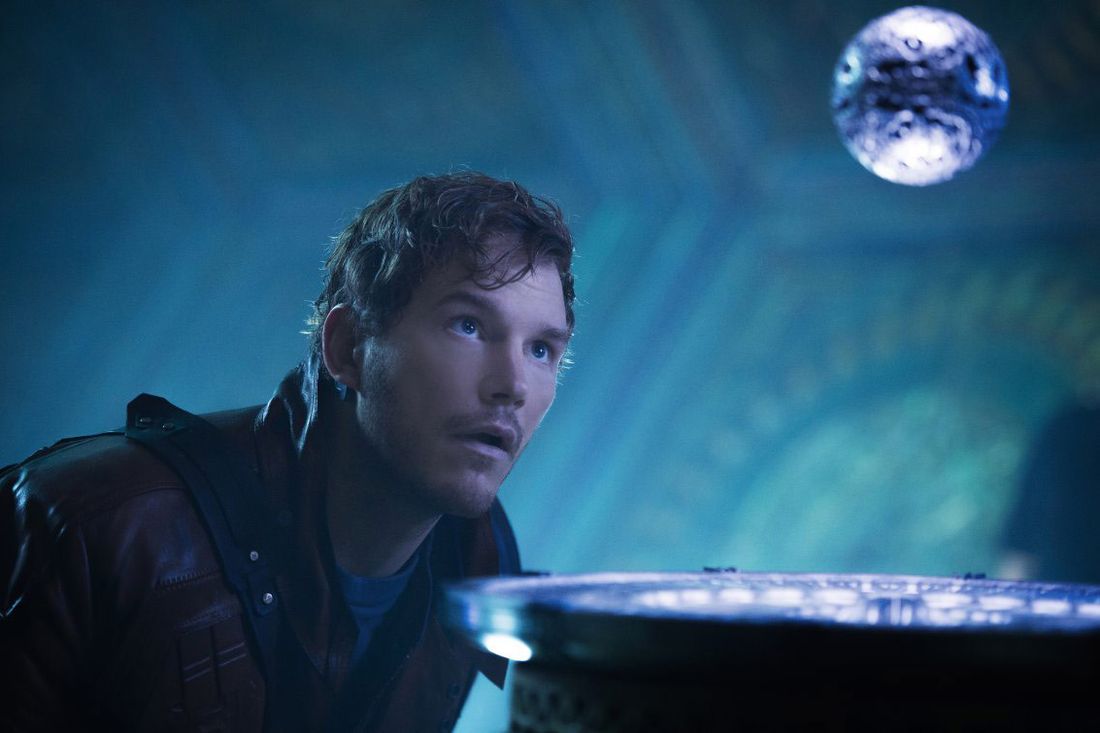
Recently, a strange image appeared in the HBO series Peacemaker and was subsequently reported by Politico: a U.S. flag altered to resemble a swastika, displayed in the office of an Ohio Republican representative during a virtual meeting. Around the same time, Politico also revealed a Telegram group where young Republicans expressed admiration for Hitler and made jokes about the Holocaust. Adding to this, former President Trump announced plans for a privately funded arch that closely resembles designs by Hitler’s architect, Albert Speer.
James Gunn’s recent projects, like the upcoming season of Peacemaker and his new take on Superman, seem remarkably prescient, reflecting current anxieties about political extremism and powerful figures. However, Gunn isn’t simply predicting the future; he’s a skilled storyteller with a clear understanding of human nature and history. He delivers impactful messages – often critical of authoritarianism – while still providing the action, twists, and spectacle that superhero fans demand. Interestingly, the superhero genre itself has always flirted with both democratic and authoritarian themes since its beginnings in 1938. Gunn’s work leans strongly into hopeful, progressive ideals, making it notably more outspoken and utopian than other big-budget superhero films.
Despite his current success, James Gunn isn’t widely considered a serious artistic filmmaker, and he doesn’t seem interested in being seen as one. He began his career with low-budget films like the Toxic Avenger series before taking on massive projects like Disney’s Guardians of the Galaxy trilogy and becoming co-chairman and CEO of DC Studios at Warner Bros. His films often aim to reflect a more inclusive vision of America – one that aligns with the country’s post-World War II ideals of rejecting fascism and ensuring patriotism isn’t associated with prejudice.
James Gunn’s work stands apart from most superhero films today. While many of those films claim to be apolitical, they often depict cities mirroring the viewpoints of Fox News – places with failing governments, widespread violence, and a need for powerful outsiders to fix things. Films like Christopher Nolan’s Dark Knight trilogy and Zack Snyder’s DC Universe movies, despite being entertaining and visually impressive, often lean into militaristic fantasies focused on power and control, with a hint of the idea that exceptional individuals are above the rules. In fact, the evolution of Batman – from a detective in a stylish car to a heavily armored, tank-driving soldier – reflects the rise of increasingly authoritarian ideas in the U.S.
Gunn has become skilled at creating films in the spirit of classic Hollywood movies like Casablanca, Sullivan’s Travels, Mr. Smith Goes to Washington, Meet John Doe, and The Battle of Midway. These films were made during a specific period – from President Franklin D. Roosevelt’s New Deal through the late 1940s – and reflected a time when returning soldiers were grappling with the effects of war. They championed Roosevelt’s democratic ideals, emphasizing the importance of people over profits, and promoted a sense of national unity, although this came with significant flaws, such as the unjust internment of Japanese Americans after the attack on Pearl Harbor.
James Gunn isn’t the only one making superhero stories with sharp social commentary, violence, and dark humor – shows like The Boys and Gen V do that too. However, as one critic pointed out, those shows can be pretty cynical and focus on how everyone is flawed. Gunn’s work, even when it’s dealing with tough subjects and using sarcastic wit, ultimately offers a hopeful outlook. While it’s important to be able to laugh at dark things and see through hypocrisy, giving in to hopelessness or blindly following authority isn’t the answer. True rebellion, in Gunn’s view, is choosing to be optimistic.

James Gunn’s 2022 Superman film draws inspiration from the All-Star Superman series and tackles timely themes. It strongly criticizes the influence of powerful, self-serving corporate leaders in government, cautions against the privatization of police and the military, and boldly proclaims hope as a rebellious act. This Superman is an immigrant who embodies the best qualities of his adopted home, but is disturbed to discover his Kryptonian parents were actually aggressive conquerors who intended for him to rule Earth, not safeguard it. Villains like Lex Luthor resent Superman not for any specific deed, but because his genuine goodness is compelling. He’s so optimistic and kind – pausing even during a massive battle to rescue a squirrel – that a cynical character, Peacemaker, complains Superman acts like he’s morally superior and makes others look bad for simply being more pragmatic.
James Gunn’s portrayal of Lex Luthor (played by Nicholas Hoult) feels very current: he’s a wealthy, anti-immigrant billionaire who believes his money gives him the power to control politics. He’s inspired by the political ideas of recent decades, with hints of figures like Elon Musk and Mark Zuckerberg. Specifically, he embodies the values of George W. Bush and Donald Trump – leaders who oversaw the creation of controversial policies and facilities, including indefinite detention and, in Trump’s case, actions described as human rights violations. In the film, Luthor uses technology from his company, LexCorp, to build a secret, privately-funded detention center – a futuristic take on the ‘black sites’ used by intelligence agencies, where prisoners can be held without legal oversight and subjected to abuse. The release of the $200 million film Superman coincided with real-world events: it premiered just days after a controversial new detention facility opened in Florida and on the same day a court temporarily blocked Trump’s attempt to end birthright citizenship.
Before Superman, there was Peacemaker, also known as Chris Smith. He first appeared in James Gunn’s 2021 film, The Suicide Squad, which centers on a team of mercenaries – both human and with special abilities – sent by the government to overthrow the president of the fictional island nation of Corto Maltese. That president had himself come to power through a coup and was essentially a fraud. Interestingly, the film, shot in 2020, seemed to predict real-world events in 2021 involving coups and political instability in countries like Guinea, Nigeria, Myanmar, and Sudan. The HBO series Peacemaker, a follow-up to The Suicide Squad, began filming in January 2021 and premiered in early 2022. The show explores the journey of Chris Smith as he tries to change his deeply ingrained beliefs. He’s a self-proclaimed super-patriot who was raised to blindly follow orders and dismiss concerns about human rights. He ironically claims to love peace, even while justifying violence to achieve it. Filmed shortly after the January 6th insurrection, Peacemaker highlights the difficulty of overcoming authoritarian thinking and learning to value empathy as a source of strength.
In a recent episode of Peacemaker, the discovery of Nazi flags at the A.R.G.U.S. headquarters dramatically shifts the show’s tone, turning a seemingly normal world into a terrifying, homegrown Nazi reality. This happens within an alternate dimension Chris accesses through a secret room of portals left by his father, Auggie. In this dimension, everything appears “perfect” – Auggie is alive and a better person, and Chris’s younger brother Kevin, who died in a childhood fight orchestrated by Auggie, is alive and fighting alongside his father as a superhero. Kevin’s death in the original dimension deeply affected Chris, making him feel worthless and leading him to seek approval from the military. This new dimension offers Chris a chance to rewrite his past and become the respected, heroic figure he always wanted to be. However, the fact that Chris immediately kills his evil counterpart upon entering this Nazi dimension is a darkly ironic twist, highlighting his long-standing feelings of inadequacy and imposter syndrome – he literally becomes the very thing he fears.
Chris is rescued from a parallel Nazi world by his ex-girlfriend, Emilia Harcourt, who pretends to be her counterpart from that reality. Meanwhile, Chris’s friend Leota Adebayo is saved from a racist mob by Judomaster, a costumed hero. Interestingly, Judomaster, usually compliant with authority, quickly understands the dangers of being different in this world. The show subtly points out how Chris missed clear signs of the dimension’s oppressive nature, like Nazi imagery and a lack of diversity. This season explores themes of privilege and challenges the justifications for oppression, a common element in the showrunner’s work. In the finale, Chris and his team return home determined to fight against similar power structures in their own world. This aligns with the show’s message that resisting injustice, even at a personal cost, is essential, as losing one’s integrity is the worst outcome.

In The Suicide Squad, Rick Flag (Joel Kinnaman) leads his team with the same no-nonsense attitude he had in the original 2016 Suicide Squad. However, the team soon discovers their mission to overthrow a dictator on the island of Corto Maltese is a lie. The U.S. government is actually trying to steal the results of a secret experiment involving alien mind control, known as the “Starfish” project. The scientist behind the experiment, The Thinker (Peter Capaldi), reveals that the U.S. conducted these experiments on ordinary citizens – men, women, and children – as well as political opponents in Corto Maltese. Horrified, Flag decides to expose the truth by leaking evidence to the press, but is killed by a fellow team member, Chris, who blindly supports the government’s actions.
After the first season of Peacemaker ended, James Gunn explained that the show wasn’t just about American politics, but more about the internal struggles of everyday people. He took on the project because John Cena surprised him with his acting range in Suicide Squad – Gunn realized Cena’s character, while flawed, had potential for growth. He was intrigued by the idea of exploring how Peacemaker became the person he was and where his story could go. Gunn’s work often features characters like Peacemaker who start out as weak or damaged, but find strength through love, friendship, and helping others. A similar theme appears in The Suicide Squad, where Idris Elba’s character, Bloodsport, is a troubled man haunted by his past. He initially joins the mission only because Amanda Waller threatens his daughter, but through his connection with Ratcatcher 2, a young woman with a difficult upbringing of her own, he discovers his leadership abilities and begins to heal as a father.
James Gunn’s new animated series, Creature Commandos, follows a team of unlikely heroes on a classic journey from zero to hero. The team is made up of metahumans and supernatural beings who were wrongly imprisoned and mistreated. They’re given a dangerous, likely impossible, mission: to assassinate Princess Ilana Rostovic (Maria Bakalova), the ruler of Pokolistan. While Ilana publicly portrays herself as a progressive leader fighting against extremists, she’s secretly plotting something catastrophic. If the team succeeds and survives, they might earn a little leniency from the authorities, and perhaps even find personal redemption. The eight-episode series uses flashbacks to reveal the compelling, yet flawed, characters. These include Dr. Phosphorous (Alan Tudyk), a former scientist with fiery powers who suffered abuse and the loss of his wife, and the Bride of Frankenstein (Indira Varma), who was exploited by her creator and haunted for centuries by the monster (David Harbour) she was meant to be with.
Gunn’s stories repeatedly feature characters who challenge how they were raised, overcome painful experiences, and strive for freedom. This journey is consistently difficult and often heartbreaking, but ultimately hopeful. It emphasizes that all beings, even those not considered human or American, deserve love and respect. The only characters who don’t receive Gunn’s empathy are those in positions of power, regardless of their background. This principle is highlighted in the backstory of G.I. Robot, a Creature Commando created to fight Nazis during World War II. He was imprisoned after the war for killing a group of American Nazis, demonstrating Gunn’s clear stance that Nazis are unacceptable everywhere and should be stopped without question.
James Gunn’s early film Super (2010) presents a much darker and more complex view of heroism than his later work. The film follows Frank Darbo, a middle-aged, religious diner cook, who tries to help a woman struggling with addiction. When she’s pulled back into drugs by a local dealer, Frank, believing he’s acting on divine instruction (actually a hallucination from a superhero show), becomes a vigilante called The Crimson Bolt. Like the comic Watchmen, Super portrays costumed heroes and villains as deeply troubled individuals. Frank feels powerless and finds a misguided sense of strength in his vigilante persona, leading him to commit assaults while trying to ‘save’ someone who didn’t ask for help. He spirals into delusion, even resorting to violence over minor inconveniences. Similar to Taxi Driver, the film ends without clear resolution, with Frank continuing to see himself as a hero despite his violent tendencies and self-deception. Super is Gunn’s only film that can truly be called a tragedy, as the protagonist remains trapped by his own pain and unable to recognize the truth about himself.
James Gunn’s film Super represented a shift in his storytelling style. His earlier work, like his first film Slither (2006) and Zack Snyder’s Dawn of the Dead (2004), had a strangely upbeat quality, even when depicting dark or shocking events. These films focused on external, monstrous threats – hive minds that infect people – and Gunn often found dark humor in humanity’s eventual defeat. This pessimistic tone continued in his 2016 script for The Belko Experiment, where employees are forced to kill each other or face death themselves. The group divides into those willing to participate for self-preservation, led by a pragmatic executive, and those who refuse, represented by a man who ultimately survives but compromises his values. However, the film reveals this horrific scenario was just the first stage of a larger, ongoing experiment, leaving his fate uncertain.
James Gunn first gained public recognition with the first Guardians of the Galaxy film. That movie and its sequels consistently feature stories about characters who are misfits or have been treated unfairly, breaking free from imposed labels and overcoming past hurts. They build chosen families based on friendship and always champion the underdog, even when it’s strategically unwise. While not traditional superheroes (though they briefly joined the Avengers in the Endgame films), the trilogy allowed Gunn to develop his unique style – a blend of self-awareness and genuine emotion – which he later brought to DC. Since then, Gunn has remained true to this approach. His more recent films explore more complex and contradictory characters, but offer a clearer sense of right and wrong: valuing inclusive societies where everyone has a voice, and condemning systems that demand blind obedience and prioritize power and wealth. These films often use concepts like body snatching to represent how authoritarianism spreads, acting like an ideological parasite that jumps from person to person.
James Gunn is entering a period with fewer high-profile projects outside of his work with DC. Currently, his only confirmed credit for 2026 is a story contribution to the revived Coyote vs. Acme movie. While his successful run at DC could end if Warner Bros. is sold, he’s achieved something remarkable: he consistently incorporates thoughtful, progressive ideas into big-budget films without sacrificing entertainment. This is a skill that’s become rare, especially now that many blockbusters seem focused solely on protecting existing franchises. At a time when societal values feel threatened, Gunn is intentionally crafting hopeful narratives, suggesting that optimism can still be a powerful force.
Read More
- All Golden Ball Locations in Yakuza Kiwami 3 & Dark Ties
- NBA 2K26 Season 5 Adds College Themed Content
- Hollywood is using “bounty hunters” to track AI companies misusing IP
- What time is the Single’s Inferno Season 5 reunion on Netflix?
- Exclusive: First Look At PAW Patrol: The Dino Movie Toys
- Heated Rivalry Adapts the Book’s Sex Scenes Beat by Beat
- Gold Rate Forecast
- He Had One Night to Write the Music for Shane and Ilya’s First Time
- Brent Oil Forecast
- Mario Tennis Fever Review: Game, Set, Match
2025-10-31 15:58